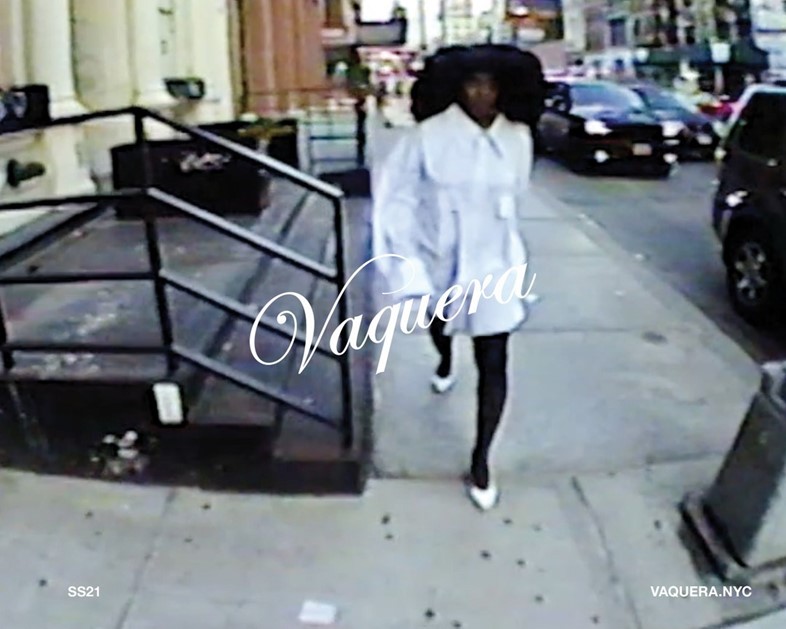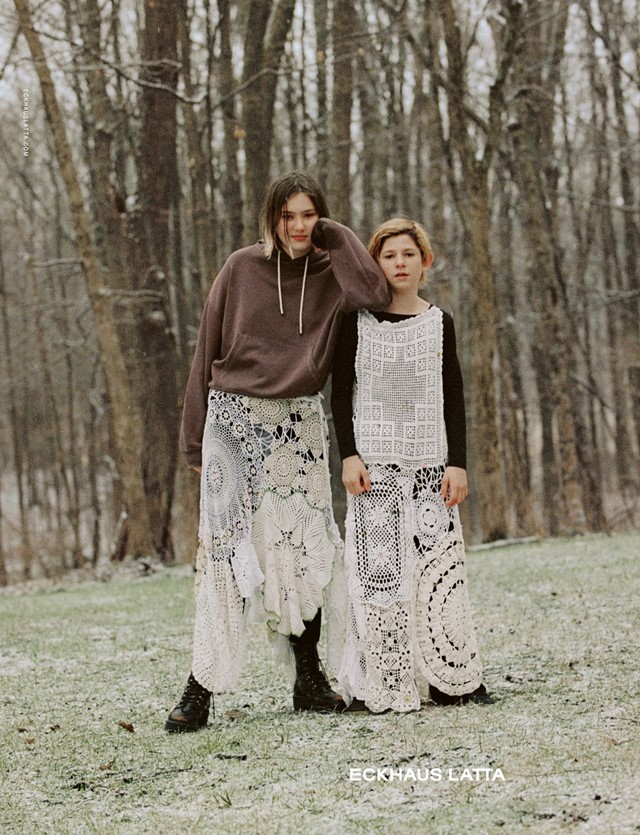As New York Fashion Week begins, the designers behind Vaquera, Eckhaus Latta, and Puppets and Puppets look back over the past year and forward to the future
In March of last year, we reached out to a number of New York-based designers as the pandemic entered its devastating early stages in the city – at the time we spoke, the wider state accounted for five per cent of all worldwide cases. No one could have quite predicted the year which followed; in the 12 or so months since the world has been forced not only to confront a virus which has claimed over two million victims, but all the inequalities and systemic oppressions it has exposed. And nowhere was this as pronounced as in the United States, for which 2020 was a year of particular tumult and social unrest.
2021, though, appears to be a time for repair and reset. For the designers we spoke to, there was a feeling of rebuilding, even back then: each spoke about how the pandemic might prove a moment for introspection, for fashion to slow down, to carve itself a fairer and more sustainable path. In the months after our conversations they put this into action, proving resilient and agile, and finding new ways to speak about and present their collections: Vaquera fly-posted their Spring/Summer 2021 collection over downtown New York (and in typically irreverent style, launched the #VAQUERABUTTCHALLENGE alongside), while Eckhaus Latta turned the street under the Brooklyn Bridge into an impromptu runway, a love letter of sorts to their home city. Behind the scenes there were changes too, a fresh way of working unconfined by the arbitrary deadlines and expectations of the fashion industry as it once was.
As a largely digital fashion month begins in New York this week, we return to three of these brands, as their designers look back over the past year and forward to the future, revealing how the outbreak of Covid-19 has altered the city’s fashion scene. Again, a hopeful mood prevails. “We are uncertain what the future of fashion month will be like, but that is what’s exciting,” say the designers behind Vaquera. “There could be nothing more depressing than a return to exactly the way things were.”
Mike Eckhaus and Zoe Latta of Eckhaus Latta
“It’s been a really exciting period of growth for us. Adapting to the hurdles of the pandemic has forced us to really change how we work, forcing us to relay a more sustainable foundation of how we operate as a business as well as providing a clarity in creativity.
“We love a fashion show. However, the malleability of when we show has been very alleviating. It feels good to not always feel like you are chasing a deadline.
“People in New York feel much more free over the past year. It’s almost like a weight has been lifted”
“Community has been incredibly important. Times like this make you realise more than ever the importance of your friends and community around you. People in New York feel much more free over the past year. It’s almost like a weight has been lifted.
“Fashion is always changing. Who knows if it is for the better or worse. Only time will tell. We deeply miss IRL shows. Nothing can replace the experience of that. We are hopeful – [it feels like] we are living through a really unknown, daunting but exciting time. What’s next? You’ll have to wait and see.”

Patric DiCaprio, Claire Sullivan and Bryn Taubensee of Vaquera
“We are working in much the same way as before. As we work with a small team, do most of our pattern-making and sample production in our studio and produce a large part of our orders in New York, the pandemic did not change the way we operate too much. It is nice to not feel the pressure of arbitrary deadlines that the pandemic has helped to dissolve.
“In a way the isolation made necessary by the pandemic has made us feel less alone. There is an element of honesty that exists now where it doesn’t feel strange to reach out to people and seek support and community even when you are isolated physically from them. Our community is a huge source inspiration. Without their support we wouldn’t still be doing what we do.
“Because we are unable to travel, people are working with the community in their city ... This is helping to define specific identities that correspond to cities”
“Living and working in the fashion industry in New York was already difficult before the pandemic and it is even more challenging now. The silver lining is that tough times really bring people together in a special way. Because we are unable to travel, people are working with the community in their city instead of flying around the world. This is helping to define specific identities that correspond to cities which Instagram and the digital communities it creates were beginning to erase.
“Fashion is definitely changing and adapting in some places. We hope that once things are able to return to normal a bit the industry will not revert back to toxic habits: arbitrary and unrealistic dates, unnecessary travel, frivolous expenses, et cetera. We really miss the physical experience of the fashion show and we are excited to be able to create physical experiences again. That said, the last year has changed the way we feel about fashion so much that even when we are able to have shows like we did before they won’t be the same. We are uncertain what the future of fashion month will be like, but that is what’s exciting. There could be nothing more depressing than a return to exactly the way things were.
“The pandemic has put everyone’s priorities to the test. Once we return to a more ’normal’ mode of existence, we will have a more holistic perspective on the way we work and interact. We plan on telling stories, creating useful and exciting products, and using fashion to bring people together!”
Carly Mark and Ayla Argentina of Puppets and Puppets
“Over the past year we’ve been working on our next collection, putting designs into production for the first time and building our new e-commerce site. We still work remotely which can be a challenge. Having the entire year to put a collection together has really given us the space to breathe, though. The result is a strong and considered collection. We’ve had the room to focus on quality.
“I think this past year has been an indicator to slow down. I don’t think the entire industry respected that sentiment – there was still a bit of rat-racing, trying to put out collections by any means possible, fight for the attention, make the products. Going forward, I would like to see the green-washing stop and a real push for circularity to emerge.
“Having the entire year to put a collection together has really given us the space to breathe ... We’ve had the room to focus on quality”
“We’ve got through this year by meditating, keeping our heads and spaces clean. Checking in with each other frequently. Feeling a sense of community right now is a challenge – everything is very insular. But something was forming before the pandemic hit – a unique New York energy. We’ll have to see what happens after the pandemic is over, see who is left. Creativity often emerges from challenging situations.”
“Nothing beats the energy of a strong physical runway show. Once things are safe enough fashion will definitely return to the in-person experience. We’re excited for what’s ahead for Puppets, and looking forward to the opportunity for our community to own our designs.”
